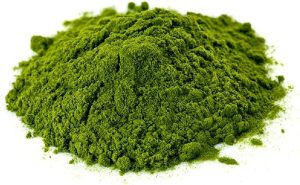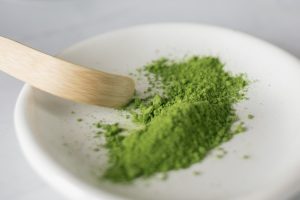- Overview of Lecithin
- Brief History of Lecithin
- Functions of Lecithin
- Recommended Daily Intake (RDI), Recommended Dietary Allowance (RDA), Adequate Intake (AI), or Reference Nutrient Intake (RNI) for Lecithin
- Deficiency of Lecithin
- Food Sources of Lecithin and Where to Get It From
- Lecithin and Its Interaction with Other Medications
- Websites and Articles to Delve into the Benefits of Lecithin
- Disclaimer

Overview of Lecithin
Lecithin is a naturally occurring fatty substance found in various plant and animal sources, with soybeans being a common commercial extraction. Composed of phospholipids, primarily phosphatidylcholine, lecithin serves as an emulsifier, aiding in the mixing of fats and water.
Widely used in food and industrial applications, lecithin contributes to the stability of many processed products. As a dietary supplement, it is marketed for potential health benefits, particularly for liver health and as a source of choline—an essential nutrient vital for cell membrane structure and neurotransmitter synthesis.
While lecithin is generally regarded as safe, its efficacy in promoting health is still under research scrutiny, and individual responses may vary.
Brief History of Lecithin
Lecithin’s history is closely tied to its discovery in the 19th century. French pharmacist and chemist Theodore Gobley first identified lecithin in 1846 while studying the components of egg yolk. The term “lecithin” is derived from the Greek word “lekithos,” meaning egg yolk.
In the early 20th century, researchers began to explore lecithin’s role as an emulsifying agent, which can mix oil and water. This property led to widespread use in the food and pharmaceutical industries, enhancing the texture and shelf life of various products.
During World War II, lecithin gained prominence as a stabilizing agent for military rations. Its versatility and emulsifying properties contributed to its adoption in both military and civilian food manufacturing.
In subsequent decades, soybeans became a major commercial source of lecithin. Advances in extraction techniques and the increasing demand for processed foods further propelled lecithin’s widespread use. Additionally, lecithin gained attention in health and nutrition, with claims of benefits for liver health, brain function, and cardiovascular health.
Today, lecithin continues to be a valuable ingredient in various industries, including food, cosmetics, and pharmaceuticals. Its history reflects its evolution from a scientific discovery to a versatile and widely utilized substance with applications in diverse fields.
Functions of Lecithin
Lecithin, a complex mixture of phospholipids, glycolipids, and triglycerides, serves several important functions in various biological and industrial processes. Some key functions of lecithin include:
- Emulsification:
- Lecithin is a natural emulsifier, enabling the mixing of fats and water. In food and culinary applications, it stabilizes emulsions, such as salad dressings and mayonnaise, preventing separation.
- Cell Membrane Structure:
- Phospholipids in lecithin, particularly phosphatidylcholine, are essential components of cell membranes. They contribute to membrane fluidity, integrity, and facilitate the transport of nutrients and waste across cell boundaries.
- Choline Source:
- Lecithin is a rich source of choline, a crucial nutrient that plays a role in neurotransmitter synthesis, cell signaling, and lipid metabolism. Choline is important for brain function and liver health.
- Liver Health:
- Choline derived from lecithin is involved in the metabolism of fats in the liver. It helps prevent the accumulation of fat in the liver, potentially supporting liver health.
- Cognitive Function:
- Choline is a precursor to acetylcholine, a neurotransmitter essential for cognitive functions such as memory and learning. Adequate choline intake from lecithin may contribute to optimal brain function.
- Nutritional Supplement:
- Lecithin is available as a dietary supplement, often taken for its potential health benefits. Some people use it for cardiovascular health, cognitive support, and to aid in fat metabolism.
- Cosmetic and Pharmaceutical Applications:
- Lecithin is used in cosmetics and pharmaceuticals for its emollient properties. It can improve the texture and stability of creams, lotions, and other formulations.
- Industrial Uses:
- Lecithin is employed in various industrial processes, including the production of plastics, paints, and inks. Its emulsifying properties are valuable in the manufacturing of certain products.
While lecithin has diverse applications and potential health benefits, it’s important to note that individual responses may vary. As a dietary supplement, it should be used in moderation, and individuals with specific health concerns or conditions should consult with healthcare professionals before incorporating lecithin supplements into their routine.
Recommended Daily Intake (RDI), Recommended Dietary Allowance (RDA), Adequate Intake (AI), or Reference Nutrient Intake (RNI) for Lecithin
As far as we are concerned, there are no specific Recommended Dietary Allowances (RDA), Recommended Daily Intakes (RDI), Adequate Intakes (AI), or Reference Nutrient Intakes (RNI) established for lecithin itself. This is because lecithin is not a recognized essential nutrient with a specific recommended daily intake.
Lecithin is a mixture of phospholipids and is often consumed as part of the diet through various food sources, such as egg yolks and soy products. It is also available in supplement form. The nutrient content of lecithin supplements may vary, and individuals might take them for specific health goals or benefits, such as supporting liver health or improving cognitive function.
If you are considering lecithin supplements or have specific health concerns related to choline intake (lecithin is a source of choline), it is advisable to consult with a healthcare professional or a registered dietitian. They can provide personalized guidance based on your individual health status, dietary habits, and nutritional needs. Additionally, new dietary guidelines or recommendations may have been released since my last update, so it’s always a good idea to check with the latest authoritative sources.
Deficiency of Lecithin
Lecithin is not considered an essential nutrient with specific dietary requirements, and deficiencies in lecithin itself are not typically identified. However, lecithin serves as a source of choline, a nutrient that is essential for various physiological functions. Choline deficiency may occur independently of lecithin deficiency, and it can have several potential consequences:
- Impaired Neurological Function:
- Choline is a precursor to acetylcholine, a neurotransmitter critical for brain function. Inadequate choline levels may impact cognitive processes, memory, and learning.
- Liver Issues:
- Choline is involved in fat metabolism in the liver. Choline deficiency may contribute to the accumulation of fat in the liver, potentially leading to non-alcoholic fatty liver disease (NAFLD).
- Muscle Damage:
- Choline is necessary for the structure and function of cell membranes. Insufficient choline may affect cell integrity, potentially leading to muscle damage.
- Developmental Issues in Fetus:
- During pregnancy, adequate choline is crucial for fetal brain development. Choline deficiency in pregnant women may have implications for the developing fetus, potentially affecting cognitive function.
- Increased Risk of Neural Tube Defects:
- Choline is associated with the prevention of neural tube defects in developing fetuses. Insufficient choline intake during pregnancy may increase the risk of such defects.
While lecithin supplements are available and contain choline, it’s important to note that a well-balanced diet with diverse food sources can often provide sufficient choline for most individuals. Foods rich in choline include eggs, meat, fish, dairy products, and certain plant-based sources like soybeans.
Individuals with specific dietary restrictions, medical conditions, or those at critical life stages (such as pregnancy) should consult with healthcare professionals or registered dietitians to ensure they are meeting their choline and overall nutrient needs. Supplements should be used under professional guidance to avoid excessive intake, as excessive choline intake can also have adverse effects.
Food Sources of Lecithin and Where to Get It From
Lecithin is found in various foods, and it’s often obtained from both animal and plant sources. Here are some common food sources of lecithin:
- Egg Yolks:
- Egg yolks are a rich source of lecithin. Consuming whole eggs provides lecithin along with other essential nutrients.
- Soybeans and Soy Products:
- Soybeans and soy-based products, such as tofu and soy lecithin, are significant sources of lecithin. Soy lecithin is commonly used as an emulsifier in processed foods.
- Sunflower Seeds:
- Sunflower seeds contain lecithin and can be incorporated into various dishes or consumed as a snack.
- Wheat Germ:
- Wheat germ is another food source of lecithin. It can be added to cereals, yogurt, or smoothies.
- Organ Meats:
- Organ meats, particularly liver, contain lecithin. However, it’s important to consume organ meats in moderation due to their high vitamin A content.
- Seafood:
- Fish and seafood, such as shrimp, cod, and haddock, contain lecithin. Fatty fish like salmon also provide omega-3 fatty acids.
- Dairy Products:
- Dairy products, including milk, cheese, and yogurt, contain small amounts of lecithin.
- Peanuts and Peanut Butter:
- Peanuts and peanut butter are good sources of lecithin. Choose natural peanut butter without added sugars or hydrogenated oils for a healthier option.
While these foods naturally contain lecithin, it’s important to note that lecithin is also commonly used as an additive in various processed foods, such as chocolates, baked goods, and salad dressings, to serve as an emulsifying agent.
For individuals looking to increase their lecithin intake, incorporating a variety of these foods into a well-balanced diet can contribute to meeting nutritional needs. However, it’s essential to consider overall dietary balance and consult with a healthcare professional or registered dietitian for personalized dietary advice.
Lecithin and Its Interaction with Other Medications
Lecithin is generally considered safe and is not known to have significant interactions with most medications. However, it’s always advisable to consult with a healthcare professional, especially if you are considering lecithin supplements or have concerns about potential interactions. Here are some points to consider:
- Blood-Thinning Medications (Anticoagulants/Antiplatelets):
- Lecithin may have a mild blood-thinning effect. If you are taking medications like warfarin (Coumadin), heparin, or antiplatelet drugs, it’s prudent to inform your healthcare provider. They can monitor your blood clotting parameters and make any necessary adjustments to your medication.
- Cholinergic Medications:
- Lecithin is a source of choline, a precursor to acetylcholine. If you are taking medications that affect acetylcholine levels (e.g., certain medications for Alzheimer’s disease), it’s advisable to discuss potential interactions with your healthcare provider.
- Anticholinergic Medications:
- There is a theoretical concern that lecithin, being a choline source, might counteract the effects of anticholinergic medications. However, more research is needed in this area.
- Medications Metabolized by the Liver:
- Lecithin is broken down in the liver. While interactions with liver-metabolized medications are not well-documented, it’s wise to inform your healthcare provider if you are on medications that may affect liver function.
- Individual Variations:
- Individual responses to supplements can vary. If you experience any unexpected side effects while taking lecithin supplements, it’s important to seek medical advice promptly.
It’s crucial to note that dietary lecithin obtained from food sources (such as eggs and soy) is generally considered safe and is a part of a normal diet. If you are considering lecithin supplements, it’s recommended to choose reputable brands and follow the recommended dosage instructions.
Always inform your healthcare provider about any supplements you are taking, including lecithin, to ensure they are aware of your complete medication and supplement regimen. This information allows them to provide personalized advice based on your health status and potential interactions.
Websites and Articles to Delve into the Benefits of Lecithin
While there is information available on the potential benefits of lecithin, it’s important to note that scientific research is ongoing, and some claimed benefits may not have robust scientific support. When exploring the benefits of lecithin, consider reputable sources that provide evidence-based information. Here are some websites and articles that may offer insights into the potential benefits of lecithin:
- National Institutes of Health (NIH) – Office of Dietary Supplements:
- NIH – Lecithin Fact Sheet
- The NIH provides evidence-based information on dietary supplements, including lecithin. This fact sheet covers its uses, sources, and potential health effects.
- WebMD:
- WebMD – Lecithin
- WebMD offers information on various health topics, including a summary of lecithin, its uses, potential benefits, and side effects.
- Mayo Clinic:
- Mayo Clinic – Lecithin
- Mayo Clinic provides information on lecithin, discussing its uses, dosage, and potential interactions.
- Examine.com:
- Examine.com – Lecithin
- Examine.com is known for providing evidence-based information on supplements. This page covers the potential benefits, dosage, and safety considerations of lecithin.
- Healthline:
- Healthline – Lecithin: Benefits, Risks, and More
- Healthline offers an overview of lecithin, discussing its potential benefits, sources, and how it is commonly used.
It’s important to critically evaluate information from various sources and be aware that individual responses to supplements can vary. Additionally, if you have specific health concerns or conditions, it’s advisable to consult with a healthcare professional for personalized advice tailored to your individual needs and circumstances.
Disclaimer
The information is solely provided for educational purposes. It is not intended to diagnose, treat, cure, or prevent any disease. Seek the advice of your physician or qualified healthcare provider with any questions you may have regarding a medical condition at all times. Never disregard professional medical advice because of something you have read or learned from this article.






